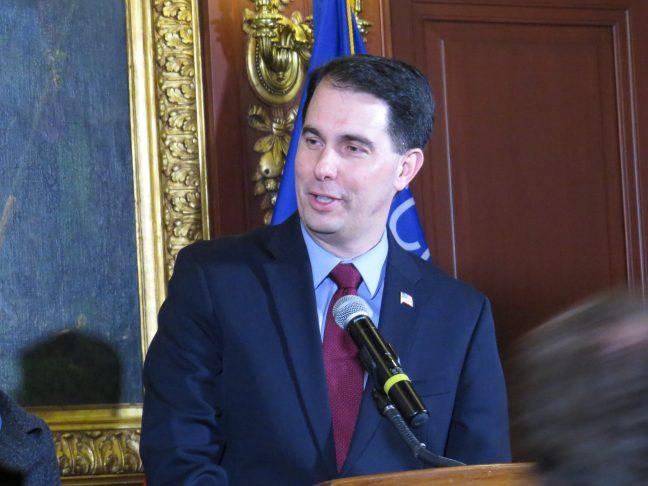Governor Scott Walker issued Executive Order #261 in late October to prohibit state agencies from partnering with any businesses that discriminate against Israel. Here’s a look at how some Madison community members have responded.
The intention of the executive order is to defend Wisconsin-Israel trade partnership and reiterate that Israel is a “firm and faithful friend to the United States.” According to the legislation, this partnership will import over $200 million annually from Israel and export $80 million annually from Wisconsin.
Walker’s order also addresses the boycott, divestment, and sanctions campaign, which pressures entities to withdraw support from Israel, as a movement that “inflames conflict” on this economic partnership.
In conjunction with the executive order, Walker also supports a bill co-authored by Senator Leah Vukmir, R-Brookfield, and Representative Dale Kooyenga, R-Brookfield. The bill, issued Tuesday, hopes to stop business entities from boycotting Israel by setting strict boundaries on state agencies.
“Governor Walker has the same commitment to preventing discrimination against Jews at home and abroad that I do,” Vukmir said. “I am glad to see his Executive Order went into effect, and I will continue to push my bill to ensure state and local taxpayer dollars are not spent in a way that targets our ally Israel.”
Through the bill, Vukmir and Kooyenga want to ensure state contracts do not partake in boycotts of Israel. Its intention is to help show support for Israel. Vukmir believes these boycotts not only attack the Jewish state but also encourages anti-Semitism.
Some community members, however, do not agree with prohibiting the boycotts. Sam Katz, a board member of Jewish Voices for Peace, believes people should be able to exercise their beliefs.
“I do not think he should pass executive orders that punish people or organizations for exercising their conscience,” Katz said.
Katz compared the executive order to a situation at a Kansas Mennonite school where a school staff member was denied re-enrollment when she would not sign a statement promising to not boycott outside of her work environment.
This went against the staff member’s personal ideologies, Katz said.
“This executive order is the same thing — unlike other employment requirements, boycotting BDS, like voting, has nothing to do with the workday,” Katz said. “The ACLU is suing the state, and taxpayers, and the American Conscience are on the line.”
Zahiah Hammad, co-president of Students for Justice in Palestine, is in favor of the BDS movement. She said although the United States claims to support freedom of speech through the First Amendment, the executive order inadvertently restricts this right.
Hammad added the United States’ holds on the First Amendment are too strict. She believes the bill impends on the freedom of speech and creates a fear for people to pick a political side.
“Something like this is restricting people to have that voice, and to have that free speech,” Hammad said.
Hammad is against the bill and hopes the U.S. will change its policy to be open about political issues.


